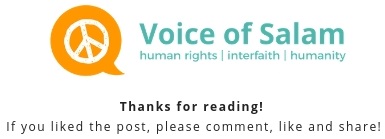By Gina*
Just after WWII, my ex-husband Chen* was born. A young couple based in California, his parents had been wed just a year and were delighted to have a boy.
At that time and in their cultural tradition, there was a distinct preference for boys – especially for the first child.
Chen was raised in the 50’s when the US was undergoing many social changes.
It was a time when sexuality was barely discussed publicly, and mostly remained behind closed doors. Divorce was still taboo, and divorced women were referred to as divorcées, discreetly, in French.
Hollywood was going great guns, and movies touched on themes related to social changes, but actors who were gay felt forced to stay in the closet or lose work.
I’ve asked myself over the years, when did Chen realise that he was gay? Because he certainly didn’t talk about it — not to anyone. Who knows. He may not have even had the vocabulary to describe his feelings.
Sexuality wasn’t something that could be discussed in his family. If his parents had even an inkling about him — and some think they did — nothing was said.
Of course, Chen went to college and tried to be a “good son” and meet his parents’ expectations.
Unbeknownst to his parents, he embarked on a new lifestyle and eventually moved in with a man. However, he of course kept his lifestyle a secret.
About a decade after his college days, Chen and I married. A straight woman, I knew little about his past. Yet, early on, I felt a chill in the marriage.
Unfortunately, the women in my family felt that no matter how mediocre a marriage was, you had to tough it out. So, I did — knowing nothing of my husband’s true sexuality.
We went on and had two children. There was discord, poor communication, and no joy in the marriage.
Eventually, I asked for a separation. Chen agreed, but was furious. He was concerned with appearances and “what people would say”.
Neither of us was happy in the marriage, but I still didn’t know the secret reason why he was so distant. We had marital counselling, but with secrets still hidden in the closet, the therapy couldn’t work.
Once again, Chen was worried about appearances. He gaslit me repeatedly. He told me that he was “fine” and that I was, in his words, a “hormone case”.

Our second separation was the final one, and I went on to initiate divorce proceedings.
Some people in our circle felt I was considering divorce too easily; some supported me unconditionally. He protested, but at the same time was undergoing many personal changes.
For years, I had tried to figure out what was wrong. Finally, I figured things out and confronted him.
He couldn’t say much, but silently showed me a photo of himself and his male lover. I finally knew the truth.
If only I’d known sooner. Chen could have alleviated a whole world of hurt if he’d had been able to talk openly. But it just wasn’t that easy.
One day, my father-in-law, someone I once loved, got angry at me for initiating the divorce and took it out on our children by becoming violent with them. He would do anything to preserve the family image.
I later learnt that Chen had always had a secret life outside of our marriage. He put my health in danger. And our children suffered for years.
The problem though isn’t that Chen was gay; that didn’t really matter.
What I took away from years of pain was that fear, social and cultural conditioning, and his own behaviour, made for a devastating lack of transparency.
The trust between us was gone forever.
Chen now lives happily with his husband. We remain in contact when it comes to discussing things related to the kids, who are now adults. I’m now also happily remarried.
It has taken years and lots of therapy for our children to be well-integrated, content adults. For such growth, I am very grateful.
I’ve reflected time and time over the years. And well, I’ve still not determined how much responsibility society bears, and how much Chen does, for him not being honest with me.
He has never apologised for the turmoil he has caused.
What I’d like others to take away from this experience is how vitally important it is for all of us to live authentically.
And, how important it is for parents to accept and support their children as they are, appearances be damned.
Seek support:
If you’ve been affected by the issues in the blog, please visit:
- The LGBT Foundation (2023): “Coming out“
- UK Gov (2023): “Guide for parents with LGBT+ children”
- The American Psychological Association (2023): “Helping the Straight Spouse When a Wife or Husband Comes Out as LGB or T”
*Names changed

This post was originally published on Voice of Salam.